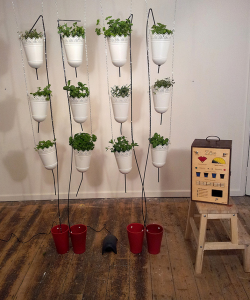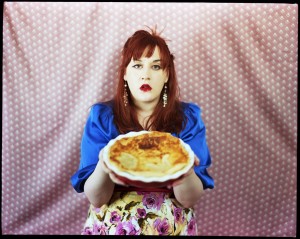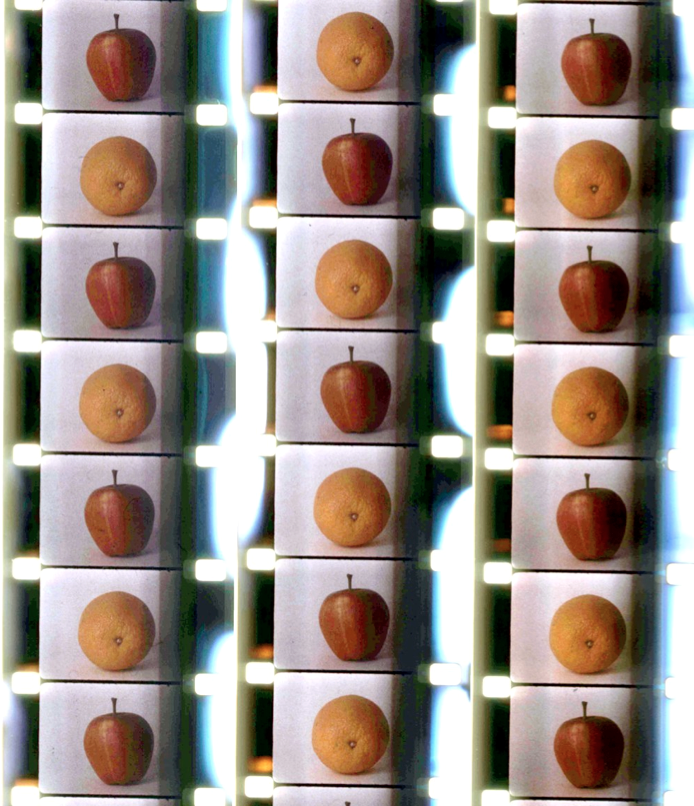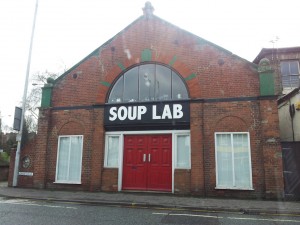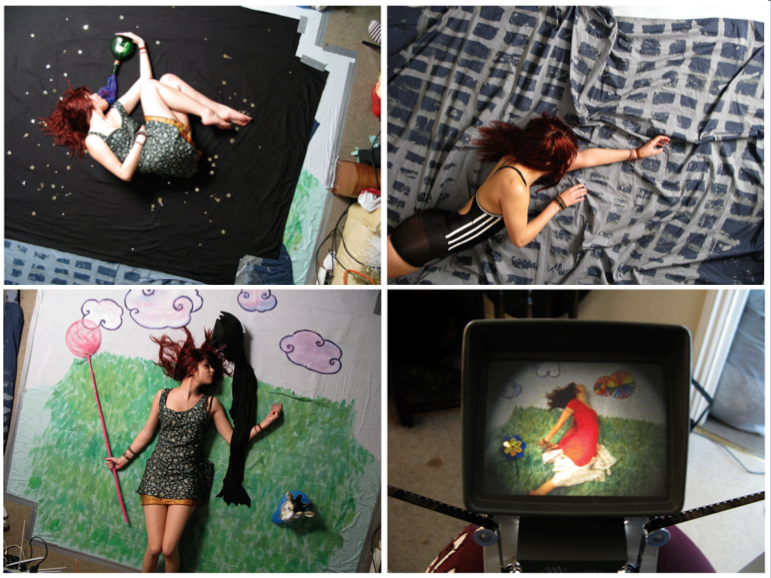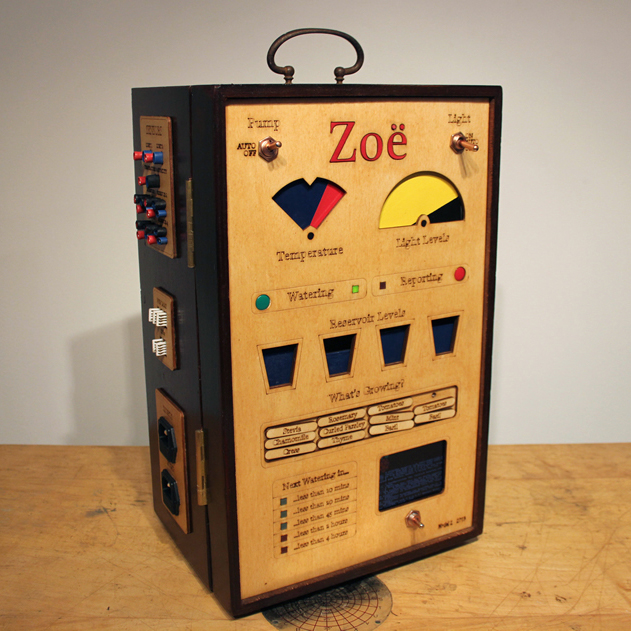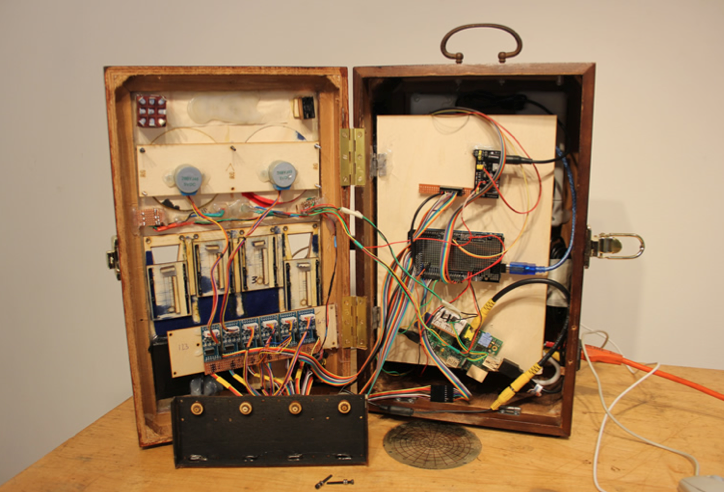| Welcome to the July’s issue of the Good e-Reader Magazine! This month features our American Library Association 2013 coverage. We dive into some of the issues facing the library industry and give you our unique perspectives. There is lots of great content and even our top 3 Android apps of the month, a great edition as always, so check it out. Good e-Reader Magazine – July 2013 is a post from: E-Reader News |
A Semi-automated Technology Roundup Provided by Linebaugh Public Library IT Staff | techblog.linebaugh.org
Wednesday, July 10, 2013
Good e-Reader Magazine – July 2013
Apple Found Guilty of Price Fixing in DoJ Lawsuit
| In a lengthy process that pitted publishers and retailers against each other, Judge Denise Cote ruled today that there was sufficient evidence brought forward by the Department of Justice, demonstrating that Apple is indeed guilty or working with publishers to set the prices of ebooks. This collusion was allegedly aimed at reducing Amazon’s power within the retail ebook market, coinciding with the launch of the iBookstore and the release of Apple’s iPad in 2010. With court proceedings that got as detailed as what time emails from one party to another may have been sent, and with some of those emails’ validity even being called into question, this ruling is somewhat of a surprise. Initially, Judge Cote made an opening remark that Apple would have its work cut out for it in the case, since the evidence didn’t look good for the technology giant. This statement alone prompted Apple’s attorneys to openly question whether or not Apple would get a fair trial in this issue. While the five publishers initially involved in the proceedings have long since settled out of court on the alleged anti-trust violations aimed at knocking Amazon’s low ebook prices out of the way, Apple has stated today that it will appeal Judge Cote’s ruling. In a statement to AllThingsD, the defendant said, “Apple did not conspire to fix ebook pricing and we will continue to fight against these false accusations. When we introduced the iBookstore in 2010, we gave customers more choice, injecting much needed innovation and competition into the market, breaking Amazon's monopolistic grip on the publishing industry. We've done nothing wrong and we will appeal the judge's decision.” For its part, law firm Hagens Berman, who filed a separate lawsuit on behalf of consumers in August of 2011, now has the door open to move forward with reclaiming some of the moneys that consumers overpaid for ebooks due to the price fixing. This ruling means that the consumers will not need to go back to court in order to determine Apple’s guilt in this circumstance, since Judge Cote’s ruling today already decides their involvement. “Judge Cote ruled definitively that Apple was guilty of conspiring to fix prices for e-books, and we believe this ruling is binding on the consumer case, meaning we do not need to again prove Apple's culpability in the price-fixing scheme," said Steve Berman in an email. "Once we receive class certification, the only issue that will remain is for a jury to assess damages, which under federal law are trebled, or tripled…When we filed the original consumer case, we were certain that e-book purchasers across the country were victims of a well-organized price-fixing scheme organized largely by Apple. We were heartened when the Department of Justice and the States filed their own anti-trust cases. Those cases were masterfully prosecuted, culminating in today's ruling."
Apple Found Guilty of Price Fixing in DoJ Lawsuit is a post from: E-Reader News |
New York Times App Now Available on the Kindle Fire
| The New York Times has introduced a dedicated app for the Kindle Fire line of tablets today. The company has never had a presence on the Amazon Android ecosystem before and is hoping to entice users with some new content. Starting today, the Times has lifted its digital paywall and will allow new users to read all of their news for free! You will be able to enjoy full unfettered access until July 31st and then be prompted to take out a digital subscription. New York Times App Now Available on the Kindle Fire is a post from: E-Reader News |
New on the OverDrive Partners Portal: OverDrive Library Service FAQs
| Here at OverDrive, we appreciate the time, energy and dedication of librarians who help users on a daily basis. We know you're on the frontlines, and we want to support your efforts and make your job easier whenever possible. The new Library Service FAQs located on the Learning Center tab of the OverDrive Partners Portal will do just that.
The OverDrive Library Service FAQs is a comprehensive collection of the most popular questions from our library partners now available in an easy to access location. Save yourself an email or web form submission to our Support Services team by bookmarking this page (http://partners.overdrive.com/learning-center/faqs/) and perusing the various sections on Collection Development, Digital Formats, Troubleshooting, User Training and more.
And don't forget, a team committed to serving your library is always here to help. You can find contact information for the team members in OverDrive Marketplace on the Support tab in the right column.
Heather Valentine-Gold is an Account Specialist with OverDrive |
URL: http://feedproxy.google.com/~r/OverdrivesDigitalLibraryBlog/~3/G7VqV6PmL7Y/
Introducing our Artist in Residence, Rachel Rayns!
| Liz: We talk a lot here about making, designing, and how computing is just as much a creative discipline as it is a technical one. There’s a weird dividing line in many people’s heads between creativity and technology. I hope that the projects we show you on this website demonstrate that there shouldn’t be. That dividing line puts the idea in the heads of many tech-oriented people that they aren’t any good at being creative; and vice-versa, it gives many creative people the impression that technology is not for them. This isn’t good for anyone, and it’s something we’re working to address, from school level right up to proper grown-ups. On Tuesday I found myself in a meeting with Sir Peter Bazalgette, Chair of Arts Council England, talking about the Pi’s potential as a tool for artists. We’re seeing more and more artists using the Pi in installations; it’s ideal for this sort of use, given all the exposed GPIO which can be used to sense things, drive things and make objects in the real world interactive, as well as its ability to drive 1080p HD displays. And, of course, it’s cheap: being able to buy a Pi for $25 means that adding computing to an installation is suddenly brought within the budgets of even garret-dwellers. At school level, we’re trying to make it clear that computing is creative – when it comes down to it, it’s all about making things, whether they be programs or robots. Without design-focused digital creatives we’d have no games industry, no CGI, no graphical user interfaces and a very boring computing environment. If I could, I’d rebrand the Computing GCSE as a GCSE in building robots, installations and wearables, and writing games. Takeup would increase tenfold overnight. Rachel (who was presenting at that Arts Council meeting on Tuesday) has been with us for a couple of months now, but we’d been unable to announce her arrival until she’d finished work on a separate project. That’s all done now, and we thought you’d like to learn a bit more about her and why she’s with us: over to you, Rach! (We are introducing Rachel with a self-portrait-with-pie from one of her recent photography projects. Serendipitous, no?) Rachel: Hey everyone! I’m Rachel Rayns. I’m an artist and maker based in Norfolk, UK. I am not a traditional artist – I can't draw or paint (much to my annoyance). Within my work I like to investigate how we use and react to technology; I mostly make films and machines! At university I developed a specialisation in really technically complex films – I would use a 16mm camera and shoot one alternate frames and then CAREFULLY rewind the film and shoot on the frames I hadn't done first time round. I had my artworks and films shown at the Whitechapel Gallery, the London Short Film Festival, Glastonbury Music Festival and many other galleries and events. While I was at university, I collected film cameras and made online tutorials for developing your own colour celluloid film (one of which compared developing film to making a pie – which is where the picture at the top comes from!) After I graduated I founded Soup Lab, a not-for-profit art organisation which focused on how new and old technologies could work together. Soup Lab ran a space in Norwich from Dec 2011 to March 2013 with a full darkroom, editing suite, motion picture film lab, gallery and offices. I directed the space and curated the programme.  The ceiling-mounted stop-animation camera rig for Rachel’s film 2D Dreams, which was chosen to open the Straight 8 Festival and proves that duct tape is the force that holds the universe together. I had heard of Arduino, I had even owned one, but I never really did anything with it. Then I heard about the Raspberry Pi and like lots of you, pre-ordered one. It sat on the shelf for a while while I thought about what to do with it, and eventually I decided to make a super-duper hydroponic gardening system, that panics and tweets when she needs water and hosts her own site, showing off photos of her flowers when they bloom. Zoe is a robot in a romantic relationship with her garden: when she and the garden are happy (when the garden is growing healthily and the plants are watered) she posts pictures of their connubial bliss, but when the soil is drying out she takes to social media to ask questions about how to improve her relationship with the plants. Now I have built most of the mechanics of the machine – but I will be asking for your help later on to make it go! So, now I'm working on more Zoe Star machines with different functions: humorous devices from alternate realities! I am all about getting people to start doing things. I love running workshops which involve using materials people haven't tried before. In the past I’ve run workshops at Tate Modern and Brighton Photo Fringe. I have also give talks and sit on panels discussing makers, artists and technology – last weekend I was at the Victoria and Albert Museum talking about Pi, art and creative tech, and talking at the Elephant and Castle's first Maker Faire with Tim Hunkin – eep!  Rachel’s most recent interactive workshop/exhibition at Tate Modern, where attendees hacked celluloid film. So, what’s an artist-in-residence, you’re asking? An artist-in-residence is usually invited into an organisation to create art which responds to the work the organisation does, the physical space they’re working in, or even a particular project. I will be working on the Zoe Star series and exhibiting Raspberry Pi projects in a number of places (including some room the guys have freed up especially for display at Pi Towers), but I’ll also be creating tutorials for this site, and setting you some challenges for you guys! I'll be working on documentation aimed at artists in helping them getting started with technology in their practice, seeking out artists already using the Raspberry Pi in their work and making sure you guys know about it; and I’ll be representing the Raspberry Pi Foundation at art events and helping the rest of the team run workshops whenever needed! 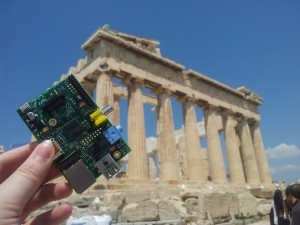 We sent Rachel to represent us and talk about the Raspberry Pi at the Athens Video Art Festival 2013 earlier this year – she mailed me this to prove she was really there… I’m currently working on a bunch of projects, including preparing for an awesome new Minecraft project with the Foundation for Art and Creative Technology and PrintCraft - I’ll have more news on that soon. I'm also running a three-session workshop programme to make your own Zoe Star machine with my help at the Victoria and Albert Museum in late November and early December – so keep an eye out for that! And I will be working lots on more Zoe Star projects with some lovely folk at Norwich Arts Centre, Writer's Centre Norwich and Cambridge MakeSpace. 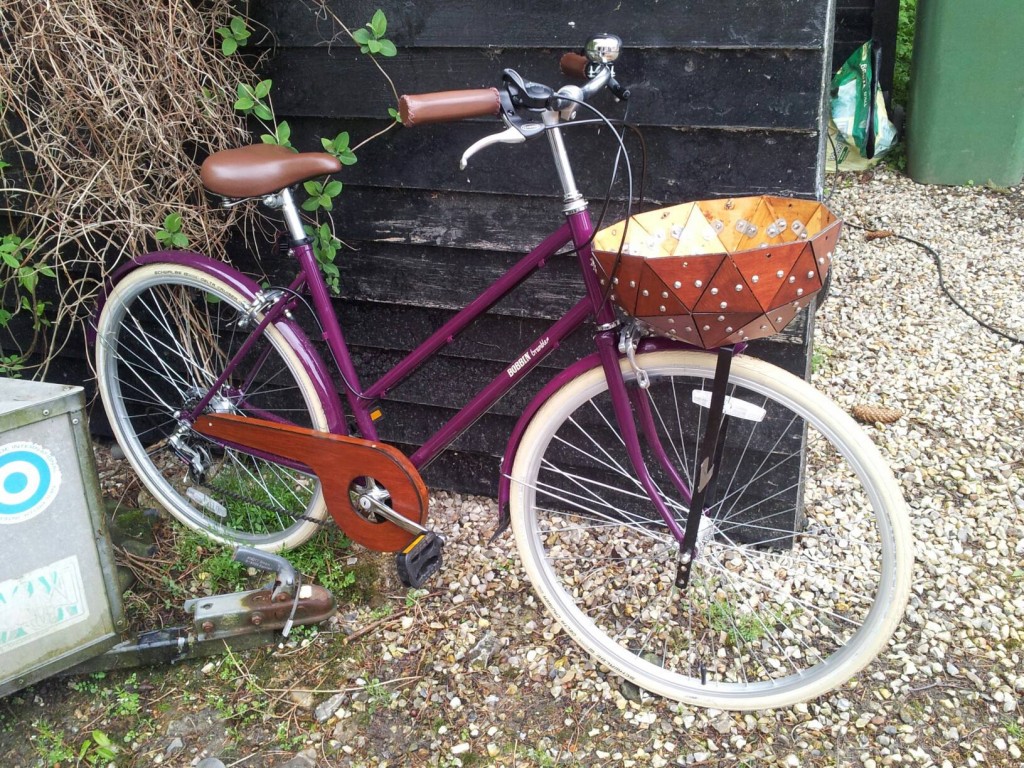 This is Rachel’s bike, with its handmade, laser-cut basket. You can see why we thought she’d be right at home with the Foundation. When people ask me what I’d like to do when I grow up, I say I would love a little studio – somewhere to be making all day, where I could also run workshops and have chats with interesting people. So, actually, I am already exactly where I want to be! I had never thought of becoming an engineer before spending time around Raspberry Pi and hackerspaces – when I was at school my appetite for hacking and making was seen by teachers as a suggestion that I should be studying art. Engineering was never on the table – and I don’t want to drop the gender bomb, but I do wonder if it’d have been the same if I’d been a boy with the same skills. I wish I'd had the opportunity when I was choosing my first degree, and if I return to university I'd love to study on the Innovation Design Engineering course at the Royal College of Art. I am super happy to be here. If you have any questions let me know and I’ll try and answer them! Liz: thanks Rach! If you live in or near London and you’d like to meet Rachel, learn more about Zoe Star and talk to her about what she’s doing with us, she’ll be at the Internet of Things Meetup in EC2 on July 16 (that’s next Tuesday). She’ll also be answering your questions in the comments here: so get commenting! |
Happy Birthday, App Store: App Developers Celebrate with Free Content
| It’s hard to believe that Apple’s widely popular app store is five years old today. They grow up so fast. To celebrate the milestone, Apple has released five apps and five games for free, although other apps are reportedly also free for a limited time without quite as much fan fare. As one source stated, today would be a good day to go see if the price of an app you’ve been needing just happens to cost a lot less. The announced apps and games include Barefoot World Atlas, Day One, How to Cook Everything, Over, and Traktor DJ. The games are Badland, Infinity Blade II, Tiny Wings, Where’s My Water? and Superbrothers: Sword and Sworcery EP. Since these prices are set by the app developers and not by Apple, there is no official announcement as to how long these apps will be available for free, as well whether or not the price drop—a nearly $20 discount for Traktor DJ—was intentional for the milestone. However, ABC News did speak with the head of one app developer, who confirmed that the promotional price is a nod to the app store’s birthday: “Barefoot World Atlas went free this morning and will remain so all this week to help celebrate five years of the App Store,” said TouchPress CEO Max Whitby. “Today’s promotion is another step down the road to help spread the word [about our apps].” Since the developers are not being compensated by Apple for their decision to reduce the price of their product, what would prompt them to make this offer? First, over the course of the app store’s five-year run, over $10 billion has been paid to its app developers. Also, as authors and publishers have discovered with ebooks, a short run at a drastic discount might mean a small loss of potential revenue, but it can be made up for in terms of boosting rankings and discovery due to increased downloads.
Happy Birthday, App Store: App Developers Celebrate with Free Content is a post from: E-Reader News |
Goodreads Users Reveal What Makes a Book Readable
| Goodreads is not only one of the top sources for online book discovery, but the buzz platform also commissions a number of surveys that provide very real insight into what reading consumers are thinking. Asking their users detailed questions from how they are most likely to find new titles to what makes the choose a cover, actual useable information comes through via their surveys. Goodreads has now released a very telling infographic on book abandonment. This information, based once again on user surveys, asked respondents to explain how often they don’t finish a book, how much of it they felt obligated to read before deciding to walk away, and what some of the crucial characteristics are that make them decide to finish or abandon a particular book. The first set of data from the survey revealed the top five current titles that readers have abandoned part way through, as well as the top fives “classics” that readers just couldn’t bring themselves to finish. Among the current reads, JK Rowling’s A Casual Vacancy and EL James’ Fifty Shades of Grey topped the list, Rowling’s for being too vastly different from her previous works for fans’ liking, and James’ work for being an embarrassment to books. Rounding out that list were Wicked, The Girl with the Dragon Tattoo, and Eat, Pray, Love. It is interesting that those last three books have all been adapted for screen or stage, and that James’ work is currently in production for a film. In the case of Wicked, readers actually cited that as the reason they couldn’t finish the book, as they had bought it based on seeing the hugely popular Broadway production and were disappointed that the book and stage version didn’t align. More useful for authors and publishers alike may be the survey results that asked participants to explain why they abandon a book in the first place. Common culprits were an introduction that took too long to get interesting–the same reason that most people stated they had abandoned The Girl with the Dragon Tattoo–weak writing, and lack of connection with the main character, among others. While more than 38% of the respondents said that they do not abandon books, finishing it regardless, this is very telling information on what readers want. It might be tempting to dismiss the survey data as not being relevant. After all, JK Rowling set records at the time for pre-orders of her book, and EL James’ title has made her quite successful. And while the books that readers abandoned admittedly were paid for and the sale concluded, these authors may not be in a hurry to spend their time or money on the next titles from authors whose works they couldn’t stand to finish.
Goodreads Users Reveal What Makes a Book Readable is a post from: E-Reader News |
The Indie Revoluution Has Been Won, So Why Are Publishers Not Adapting?
| It’s literally been years since publishing industry experts first scoffed at the current self-publishing methods, as the book world as a whole looked down their noses at authors’ feeble attempts to get published. From the beginning, self-publishing was the kiss of death for a book, if not for the author; as big-name authors began to get big-number contracts off their self-published efforts, that attitude began to change, in the eyes of the publishers and the readers. But if self-publishing has adapted to the market to the point that authors can find a level of satisfaction in the process, why aren’t traditional publishers changing their business practices to recreate that process for their own titles? In an article for HuffPoBooks and her blog, author Alanna Brown explains what is currently holding traditional publishers back, namely, the tired-out archaic strategies that they have relied on for decades. And while she brings up two well-known complaints with traditional publishing–insultingly lower royalty rates by comparison, and the snail’s pace of getting a book from the submission stage to a bookshelf–it’s really the marketing of books that quite possibly may be hurting publishers. As Brown explains, publishers just aren’t able to make SEO happen. “James Altucher, an author who’s taken both routes, candidly discloses the abysmal lack of marketing effort he’s experienced with mainstream houses. Of the handful of books he’s released, the two he self-published sold more than five of his traditionally published books combined. He affirms that the chief inquiry of a big publishing company is, ‘How big is your platform?’ Before even looking at a new author’s proposal, ‘They want to know how you can market the book and if they can make money on just your own marketing efforts,’ says Altucher.” Traditional publishers want to see a steady following–or built-in consumer base–before agreeing to work with an author because their marketing dollars just aren’t there. The joke of finally being given some measure of validation by the publishing industry in the form of a book deal is that the author is still going to work just as hard on marketing as a self-published author, but for a 15% royalty instead of the typical 70% offered through ebook distribution platforms.
The Indie Revoluution Has Been Won, So Why Are Publishers Not Adapting? is a post from: E-Reader News |
From FishPi to LittleBox – a Kickstarter to turn your Pi into a desktop PC
| Remember Greg Holloway, the mind behind FishPi? He did a guest post for us about a year ago (complete with kraken) about the difficulties of making an autonomous, solar powered, ocean-going robot. He’s now launched Littlebox, a Kickstarter for a DIY kit to turn your Pi into a desktop PC.
There’s a resistive touchscreen! A USB hub! A lovely little GPIO panel that’s brought out in the front of the unit! Speakers and an amp! Greg has details of the development over at Instructibles if you want to learn more about the build. We think it’s a great project, and we hope you’ll consider funding it. Littlebox’s Kickstarter only went live yesterday, so there are still some Earlybird packages left – go and check it out! |



